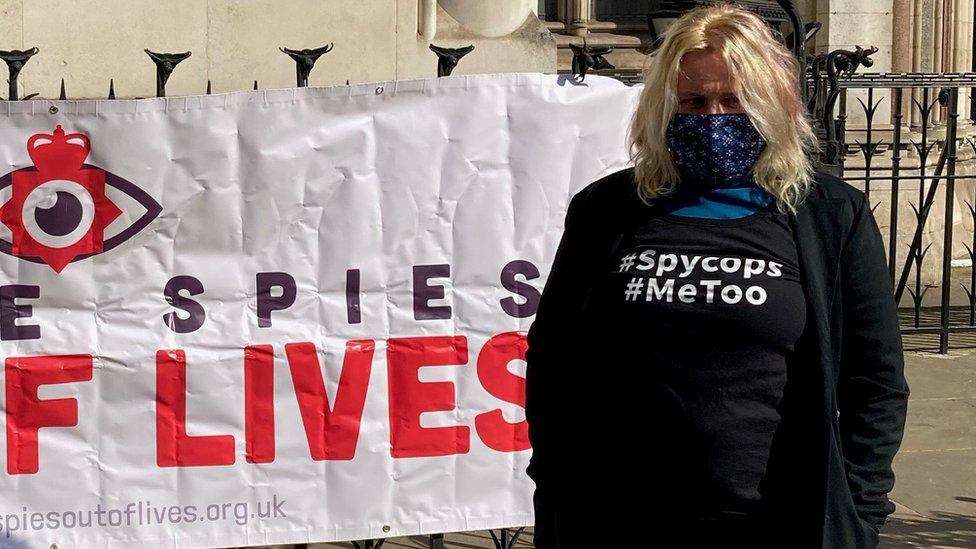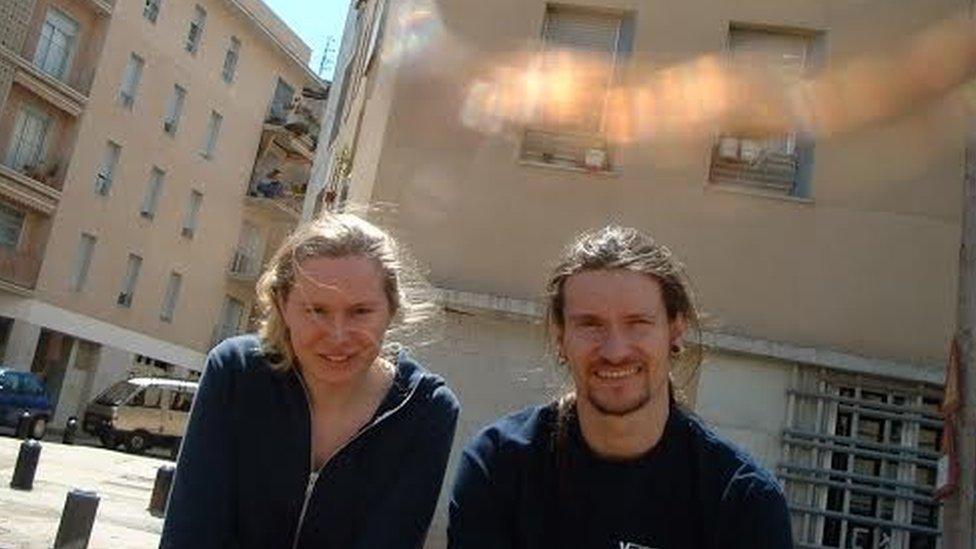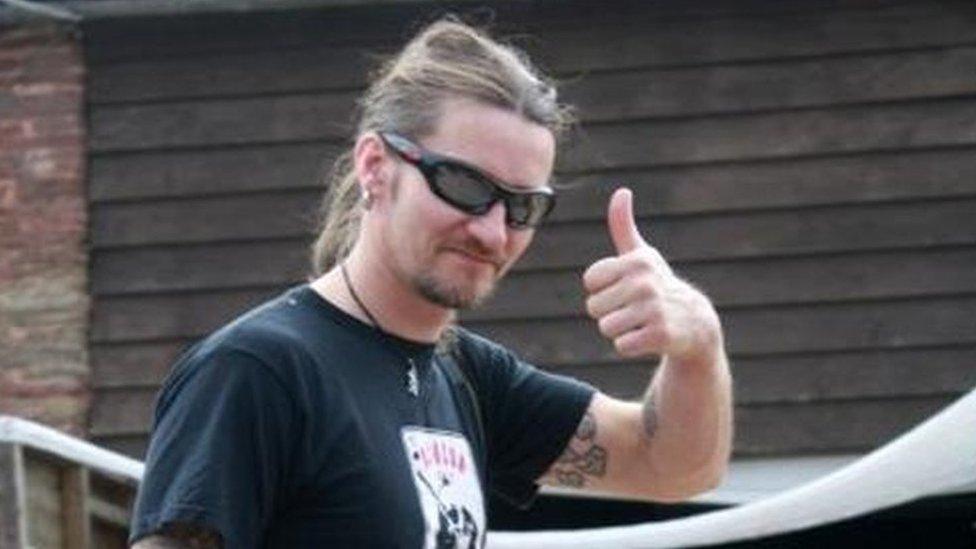Deceived activist Kate Wilson wins tribunal against Met Police
- Published

Kate Wilson said senior officers were aware of the relationship
An activist who was deceived into a relationship with an undercover police officer has won a tribunal case for breaches of her human rights.
Kate Wilson met Mark Kennedy while he was posing as an environmental campaigner in Nottingham in 2003.
It later emerged Mr Kennedy had sexual relationships with as many as 10 other women during his deployment.
The tribunal said the case revealed "disturbing and lamentable failings at the most fundamental levels".
Earlier this year the Investigatory Powers Tribunal (IPT) at the Royal Courts of Justice heard Mr Kennedy had been sent to infiltrate the Sumac Centre in Nottingham in 2003.
Shortly after arriving Mr Kennedy, calling himself Mark Stone, started a relationship with Ms Wilson which lasted for two years before an amicable split when she moved to Spain.
In 2010, she learned his real name and that he was actually a married police officer.
Unlawful discrimination
Ms Wilson's legal action against the Met and the National Police Chiefs Council (NPCC) cited breaches of her right to freedom from inhuman and degrading treatment, her right to privacy and right to freedom of expression.
The Met and NPCC accepted Mr Kennedy's actions amounted to a breach of those rights but had denied other officers, apart from Mr Kennedy and his cover officer, knew or suspected that Ms Wilson was in a sexual relationship with the officer.
However, Ms Wilson argued there was "widespread indifference, or express or tacit encouragement" for undercover officers to begin intimate relationships while they were deployed.
In a ruling, the IPT found the Met's claims that undercover officers (UCOs) knew sexual relationships were banned were "materially undermined by the sheer frequency with which [Kennedy] (and other UCOs) did conduct sexual relationships without either questions being asked or action being taken by senior officers".
"We are driven to the conclusion that either senior officers were quite extraordinarily naive, totally unquestioning or chose to turn a blind eye to conduct which was, certainly in the case of [Kennedy], useful to the operation," the tribunal added.
The IPT also found the Met and NPCC's failure to guard against the risk of UCOs entering into sexual relationships with women amounted to unlawful discrimination against women.
The tribunal concluded: "This is not just a case about a renegade police officer who took advantage of his undercover deployment to indulge his sexual proclivities, serious though this aspect of the case unquestionably is.
"Our findings that the authorisations under [the Regulation of Investigatory Powers Act 2000] were fatally flawed and the undercover operation could not be justified as 'necessary in a democratic society' ... reveal disturbing and lamentable failings at the most fundamental levels."
'Abuse of power'
In a statement, Ms Wilson said: "The events in my case happened years ago, however the failure of the police to protect women from sexual predators within their own ranks, and police attempts to criminalise protesters, are both still very live issues today.
"We need to tackle the misogyny and institutional sexism of the police, and there needs to be a fundamental rethink of the powers they are given for the policing of demonstrations and the surveillance of those who take part."
A statement from the Met and NPCC said: "We accept and recognise the gravity of all of the breaches of Ms Wilson's human rights as found by the tribunal, and the Met and NPCC unreservedly apologise to Ms Wilson for the damage caused, and the hurt she has suffered from the deployment of these undercover officers."
It said the force reiterate previous apologies made to Ms Wilson in 2015 and 2017, adding: "As those apologies made clear, the Met and NPCC acknowledge that the sexual relationship was wrong, it was an abuse of police power and violated Ms Wilson's human rights.
"It caused Ms Wilson significant trauma, and demonstrated failures in the way Kennedy was supervised and managed."
The statement added the Met accepted the panel's findings and "are carefully considering the detail of the judgment to see whether any further learning can be taken to add to the changes already implemented since 2010, to the training, supervision and legal oversight of UCOs".

Follow BBC East Midlands on Facebook, external, Twitter, external, or Instagram, external. Send your story ideas to eastmidsnews@bbc.co.uk, external.
- Published20 April 2021

- Published19 November 2020

- Published2 November 2020